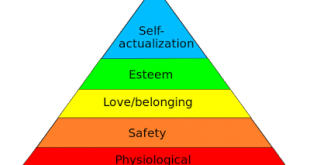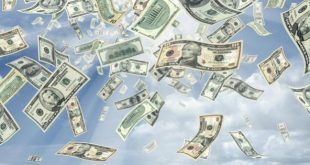Pettifor’s new book, The Production of Money: How to Break the Power of Bankers, aims to elucidate the nature of money, the better to help women advocate for their needs. Money, credit, interest rates, bank regulations, the way things are accounted for in the public budget; all of these, Pettifor argues, have tangible effects on women’s lives, and the condition of society as a whole. And in order to make change, we’ve got to get passionate about topics that most of us have been conditioned...
Read More »On the AS/AD model and the micro/macro relation
I promised to discuss Nick Rowe's claim that one must start with Aggregate Demand and Supply (AS/AD) to explain macroeconomics. Nick's argument is that the AS/AD model is useful to analyze monetary economies, and he quite correctly points out that money must be part of the discussion from the start. In his words: And if you don't start with money, monetary exchange, and AD and AS, you are doing macro wrong. Because the only thing that makes macro different from micro general equilibrium...
Read More »Maslow’s hierarchy of money
A new study shows that the form of shadow "money" used in US prisons is changing. For many years it has been cigarettes (tobacco), and to a lesser extent stamps and envelopes. But now it seems the popularity of these in the prison black economy is declining - in favour of food. Specifically, Ramen noodles, a high-calorie, substantial foodstuff.Without examining the reasons for this change, it would be easy to assume that this is a matter of relative scarcity. Perhaps Ramen noodles are...
Read More »Ramen is displacing tobacco as most popular US prison currency, study finds
So the internet seems pretty much obsessed with this story right about now… The headline, taken at face value, isn’t particularly surprising to economists- we are quick to point out that a pretty wide variety of items can count as “money”, provided that they perform a few functions: A medium of exchange A unit of account A store of value By this characterization, sure, ramen could serve as money- I guess ramen packs aren’t so large as to be too cumbersome to be traded, you could quote...
Read More »Keynes and the Quantity Theory of Money
"Best diss of the Quantity Theory of Money comes from Keynes", commented Toby Nangle on Twitter, referring to this paragraph from Keynes's Open Letter to Roosevelt (Toby's emphasis): The other set of fallacies, of which I fear the influence, arises out of a crude economic doctrine commonly known as the Quantity Theory of Money. Rising output and rising incomes will suffer a set-back sooner or later if the quantity of money is rigidly fixed. Some people seem to infer from this that output...
Read More »Karl Bücher on the Origin of Money
Karl Bücher (1847–1930) was a member of the Younger German Historical School, an important 19th century and early 20th century alternative to the Classical and Neoclassical schools of economics.The German Historical School had an interesting theory on the origin of money, rather similar to that of Karl Marx.This is from Karl Bücher’s book Industrial Evolution (1901) (N.B. his language and some of his attitudes, as you’d expect, are of the 19th century, so please get over that): “… it must be...
Read More »Carl Menger on the Origin of Money in his 1909 Article “Geld”
Carl Menger’s famous 1892 article “On the Origin of Money” in the Economic Journal was based on an earlier article called “Geld” (“Money”) in the German language publication the Handwörterbuch der Staatswissenschaften (Menger 1892). This article went through a further two revised editions in 1900 and 1909 (Menger 1900 and 1909).In the third edition of 1909, Menger had expanded the article to about 55 pages from the original 27 pages in the 1892 version.In his first section of the 1909 article...
Read More »Quiggin on Cattle Standards and Cattle as Proto-Money
From the anthropologist A. H. Quiggin’s A Survey of Primitive Money: The Beginnings of Currency (London, 1949) on cattle or oxen as a standard of value in ancient and less developed societies: “Throughout the greater part of the immense region which includes Europe to the West and stretches to Further India in the East, cattle were the chief form of wealth, and, as is seen in Africa, where cattle form the standard of value, varieties of primitive money are undeveloped. .... Cattle, however...
Read More »George Selgin versus David Graeber on the Origin of Money
The blogosphere has recently seen a new debate on the origin of money between George Selgin and David Graeber: Ilana E. Strauss, “The Myth of the Barter Economy,” The Atlantic, February 26, 2016 http://www.theatlantic.com/business/archive/2016/02/barter-society-myth/471051/ Though not by Selgin or Graeber, I gather that this article set off the debate.George Selgin, “The Myth of the Myth of Barter,” Alt-M Ideas for an Alternative Monetary Future, March 15, 2016....
Read More »Money and Banking – Part 6
Treasury and Central Bank Interactions This post concludes our study of central banking matters (there would be a lot more to cover…maybe another time). The post studies how the Fed is involved in fiscal operations and how the U.S. Treasury is involved in monetary-policy operations. The extensive interaction between these two branches of the U.S. government is necessary for fiscal and monetary policies to work properly. Once again the balance sheet of the Federal Reserve provides a simple...
Read More » Heterodox
Heterodox



